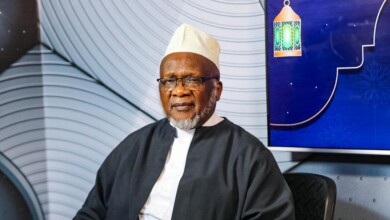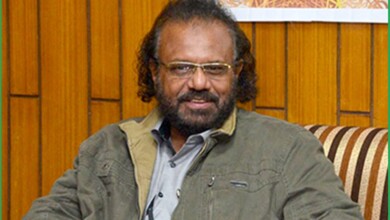Adieu Dr Hassan Wasswa Galiwango

On January 16, the country woke up to the news of the death of Dr Hassan Waswa Galiwango alias Galix as he was fondly known within his close circles. Galiwango who was Uganda’s High Commissioner to Kenya and Seychelles died of heart-related complications at Nairobi Hospital. He was aged 64.
To the majority of Ugandans, Galiwango was just Uganda’s commissioner and a former director of finance and administration in the ruling National Resistance Movement (NRM).
However, to the people of Mbale, Galiwango was a real gem that will be missed for his selfless service and dedication to humanity. He touched many lives through various social, economic, educational and development programs. He enabled hundreds of needy students to get an education through his Mbale Progressive Academy in addition to supporting other community programs such as the provision of clean safe water, construction of houses of worship and provision of material support to the needy.
“Nothing defines greatness like the death of a man. Galiwango Hassan comes from a variant Milieu, not this one. When I was sacked from [Busoga College] Mwiri, he together with the late Muzamil Ayuba and Imran Muluga admitted me to their infant school (Mbale Progressive Academy),” Mahir Balunywa, a lecturer at the Old Kampala-based Islamic Call University College eulogized Galiwango.
“In his school, I won a scholarship to senior six where I paid no coin, in his school, I conducted a strike, but the guy never stopped forgiving me. He taught me African history, a great demagogue of his times,” he added.
Dr Madinah Nabukeera, the director of IUIU Female Campus- Kabojja, described Galiwango as a strong pillar of Muslim education in Uganda that for 30 years has been offering educational scholarships for learners at different levels.
“He has been offering scholarships at primary, secondary and University levels at IUIU for hundreds of students for close to 30 years now. He didn’t name his scholarships Dr Galiwango Scholarships it is only Allah to appreciate his deeds and reward him with Jannah. I have a good number of students at [Kabojja] that have been beneficiaries and he was the sole funder of their education. I am sure this news has brought sorrow and misery to them. May Allah forgive him because of his humanitarian activities,” she said.
Hajji Sulaiman Musana, his longtime friend recounted their school days in the early 1970s until the collapse of Idi Amin’s government in 1979 when Muslims became soft targets for the anti-Amin forces. “Muslims feared to associate with Islam. Nobody could dare where the Muslim cap for fear of being attacked. We quickly teamed up with the late Galiwango under the guidance of Dr Umar Kasule and started wearing out Muslim headgear to show that Muslims were good people,” Musana told mourners who turned up at Gaddafi national mosque for Galiwango’s funeral prayers on Monday night.
The trio later teamed up with the late Muzamil Ayub, and the late Hussein Kato Galiwango to start conducting seminars for Muslim students at Nkoma Secondary school. The seminars gave birth to the annual Ramadhan Seminars at IUIU.
Upon his appointment as Mbale Resident District Commissioner, Galiwango undertook to resolve the wrangling between rival Muslim groups in the district. At the time, the current Mufti, Sheikh Shaban Ramathan Mubaje was the Kadhi of Mbale under UMSC while the late Sheikh Muhammad Yusuf Wamboya led the Kibuli faction. Galiwango met the rival leaders and convinced them to join forces to work towards the unity of Muslims in Mbale.
Born in 1958 to the late Muhammed Galiwango of Doko village in Namatala ward in Industrial City Division, Mbale. He attended Kanginima Primary School before joining Buwalasi Teachers’ College to train as a Grade II teacher. He later enrolled at Nyondo Teachers’ College where he attained a Grade III teacher’s certificate.
After some years of teaching, he joined Masaba Secondary School where he sat for his A-level which enabled him to get admission to IUIU for a Bachelor of Arts degree in Education. He went on to acquire a Master of Arts degree in Public Administration from the same university and later on a PhD from Port Elizabeth University in South Africa.



